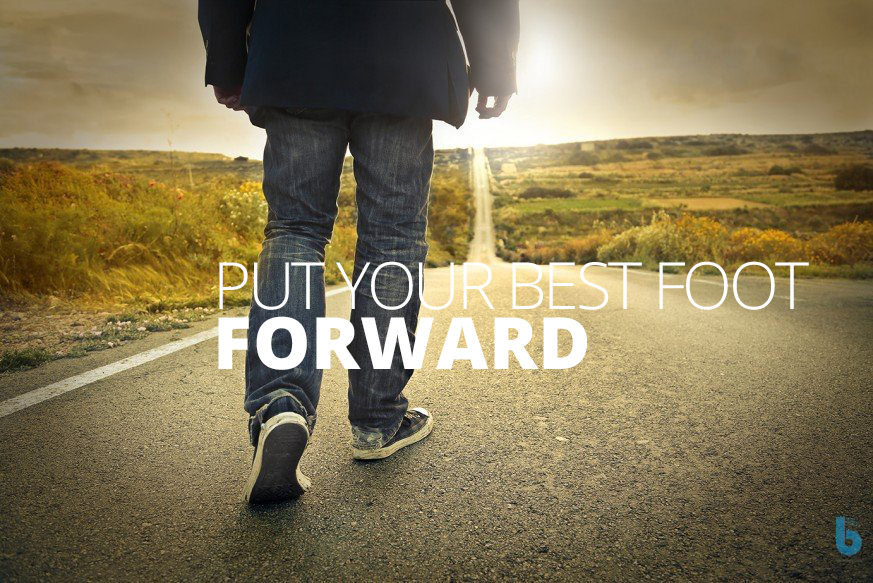The big questions about being the best you at work are: Do you contribute to the best of your ability? Is your best work getting out there? Is it breaking through? Is it creating a difference people love? David Sturt tells us how to make a difference with great work.
Many of us have grown up believing that our ability to succeed at work depends on our IQ, talent, education level, gender, job title or when and where we were born. But, the truth is, innovation can come from anyone, anywhere – and especially from you. This isn’t a motivational statement. We researched it.
A study conducted by Forbes Insights, the Cicero Group, and the O.C. Tanner Institute that analyzed 1.7 million cases of award-winning work across all industries and geographic areas found that simple activities (things people do) predict success more accurately than any of the traits (who people are) listed above.
What can you do to bring out your best work and the best you? Here are just a few activities culled from the Great Work study that show what award-winning workers do, and that you can do today.
Learn to ask the right questions. Pause as your next project begins or schedule time weekly to think about the people your work serves. Consider customers, team members, leaders and partners. Think about things you could do that those people would love. Ask yourself if you can make something easier, simpler, faster, safer, greener or smarter. Can you make it more affordable, convenient, enjoyable, more connected or more secure? In our research we found that 88 per cent of great work projects began with some version of the question, “What difference would people love?”
Go and see how people experience your work. When you go and see for yourself, you’ll witness first hand what’s working and what isn’t. Watch how your work is being used. Look at what your work does. Look deeply at the process. Understand the workflow and how the work is conceived, produced and delivered. By looking in new ways, you will see new ways of doing things and new opportunities to make a difference. It will also fuel your passion for difference making. Those who go and see are 17 times more likely to have passion for their work.
Talk to your outer circle. Instead of just having conversations with people in your ‘inner circle’ (the people you often share ideas with) reach to your ‘outer circle’. Pay attention to new thoughts and ideas from people who may not be familiar with you and your work. Invite others to share their opinions. Explain your hunches and ask what they might improve. Gather all you can from each conversation. Seek out specialised know-how and explore naysaying points of view. Look for points of clarification. Remember to keep notes of all the ideas (both positive and negative) you hear and record how they can apply to your work. According to our research, 72 per cent of projects that end up with people receiving awards for their great work involve people talking to their outer circle.
Improve by adding or removing. When you decide to make something better, your first impulse will be to add something new. Think of your project like a soup recipe—a little more of this and a little more of that. But difference makers also know that making something better sometimes means removing unwanted, unnecessary or even distracting elements. Look for areas to add and remove until your work really makes a big difference. Statistically speaking, your work will be three times more effective when you add or remove an element or two.
Deliver the difference. One of the most important things you can do to deliver your best work is to see it all the way through until you know a difference has been made. Too often, people think their work is done before they know if what they did was actually loved. Stay with your project and measure the impact from the change you made. Keep your eye out for any additional tweaks you can make that would make your work even more effective. In our research, we found that so much of the impact came from the final adjustments toward the very end of the project after others had moved on to something else. Ninety percent of award-winning projects we reviewed included employees who remained involved through implementation.
To be the best you, it’s important to look at you as a whole – your work, your relationships and your attitude. Great work begins when you take the time to ask if there is something different you could do that someone else would love. Great workers look with their own eyes from a variety of perspectives to see new possibilities. They initiate new conversations with new people to generate ideas they wouldn’t be able to think of on their own. They tinker and test and tweak things in hope that they will not only improve a product, process or service, but that they will also improve someone else’s life through the difference they make.
Oh, and don’t forget: you can’t become the best you in a silo. You will be surprised at how many people are there to help you, support you and feed you ideas. Being the best you also means showing genuine appreciation to those people who helped you get where you are today, and those who will champion your great work in the future.





